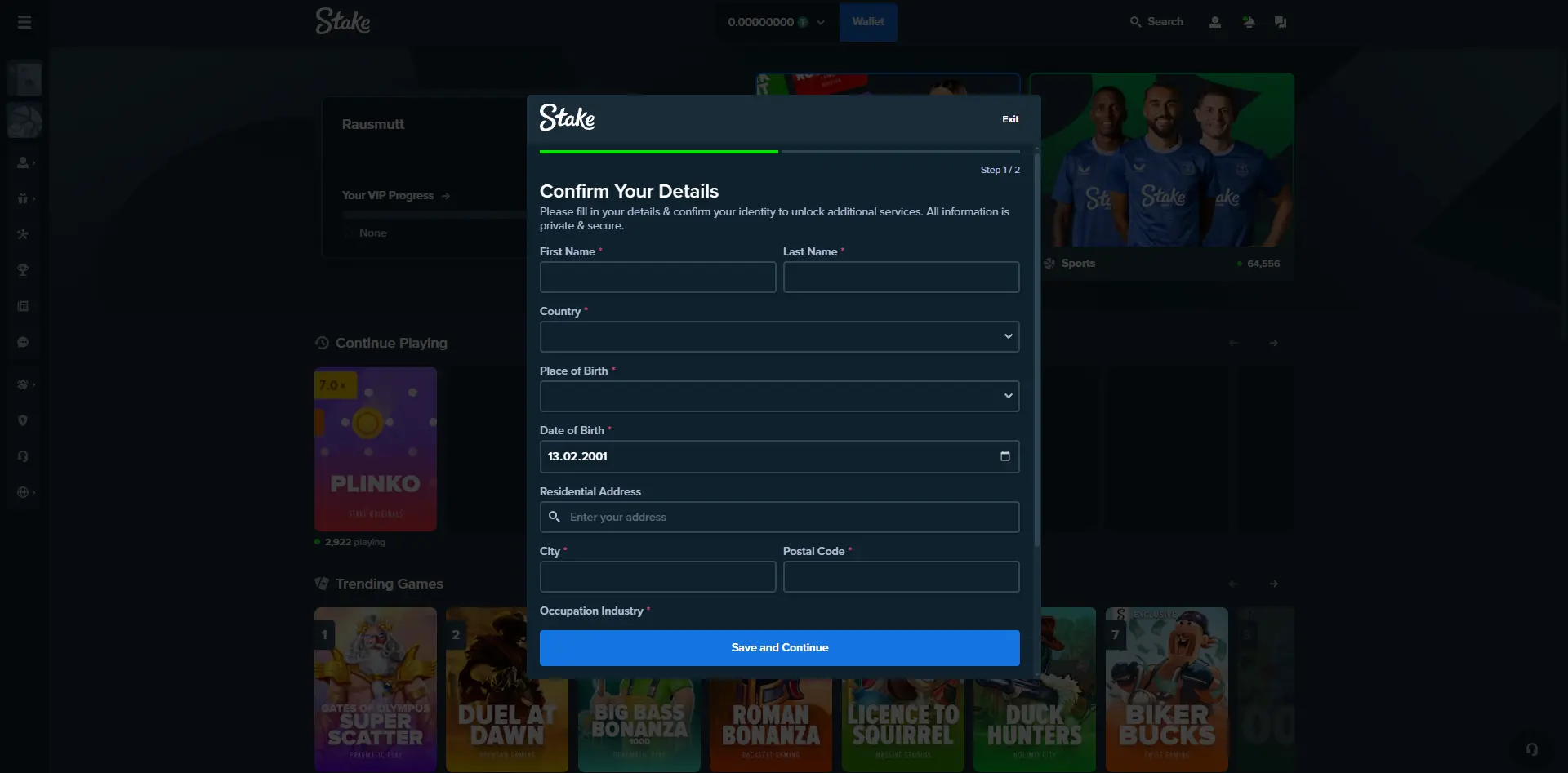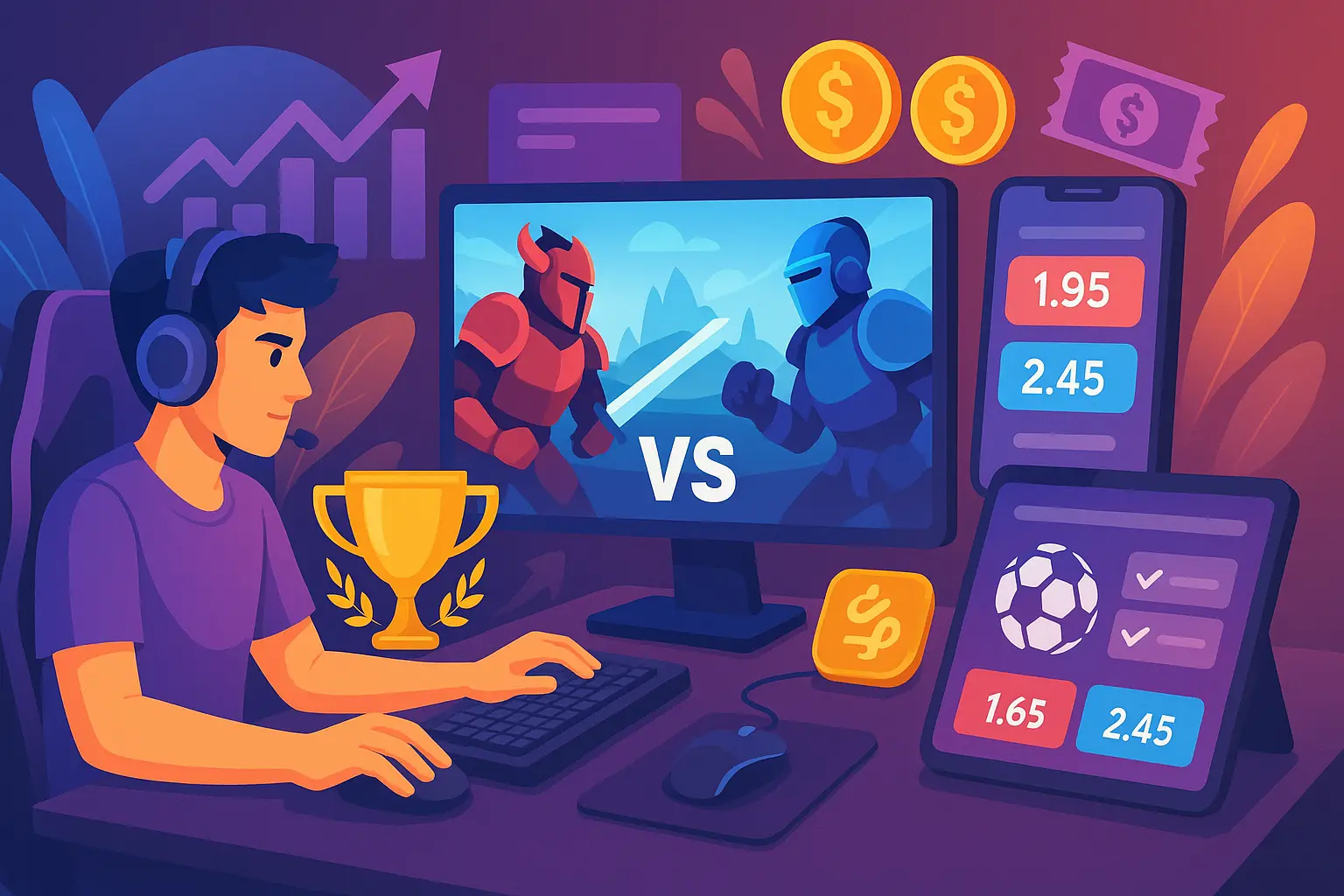- FELIX
Article
14:13, 30.04.2025

In today's world, esports betting has long moved beyond the niche corners of the internet where it all began. What was once just a curiosity has now transformed into a rapidly growing segment of the global betting industry, which has long existed in traditional sports.
Top-level tournaments attract millions of views, and the prize pools can rival traditional sports, sometimes even surpassing them. This, in turn, has allowed betting companies to become sponsors of various events and tournaments.
Betting on esports has not only become easier but also significantly more interesting: the selection of events and gaming activities is wide, and the platforms themselves are more developed and accessible.

What is Esports Betting
Esports betting is exactly what it sounds like: real money is wagered on the outcomes of video game competitions, and essentially, esports betting is part of the overall betting structure in companies that provide such services.
Instead of rooting for a football team or a tennis player, you support professional gamers and teams competing in games like Dota 2, CS2, Valorant, League of Legends, or any other competitive project.
The mechanics of betting are similar to traditional sports: you can predict the winner of a match, the number of rounds played, or even specific in-game events — it all depends on the game itself and the bookmaker.

Esports is distinguished by its dynamism, unpredictability, and vast variety of disciplines — each with its own rules, pace, and community. Therefore, predictions for each discipline will be individual — as will the odds or any other parameters that define the esports game on a betting platform.
What Can You Bet On?
Esports betting is much more diverse than it seems. You are not limited to just choosing the winner. Among the available options:
- Who will win the match or series.
- Who will win a specific map.
- Who will make the first frag / score the first goal.
- How many maps or rounds will be played (total).
- Who will win the tournament before it starts.
In some games, exotic bets appear: "Will Team A make a pentakill?" or "Will Player X score over 30 kills?" Each site offers different conditions and odds, so it's worth comparing them before placing a bet.

A Brief History of Esports Betting
Just ten years ago, no one could predict the scale this industry would reach. Today it attracts more viewers than some traditional sports. Naturally, bookmakers have joined in. The first serious step was taken by Pinnacle Sports when they began accepting bets on the GSL series of StarCraft II tournaments in 2010. This laid the foundation for the modern billion-dollar market.
By 2025, almost all major bookmakers offer esports betting. Moreover, numerous platforms dedicated exclusively to esports have emerged. The number of games has increased significantly: from giants like League of Legends, Dota 2, or CS2 — to less popular but still active scenes like Valorant, Rocket League, and Street Fighter. If there is an audience, there will be a betting market.


How to Bet on Esports
If you don't delve into the details and analysis of various components related to predicting the winning team or position, and focus on the process of placing a bet, it's quite simple. First, you should choose a betting platform and register on it — for example, Stake. Let's see how to place a bet on esports based on this site.
Choosing a Betting Company and Registering an Account
After the usual registration process, you will need to confirm your email and provide more information about yourself to verify your identity. This is necessary for participant transparency, to avoid bot accumulation and fake accounts, and to prevent fraudulent schemes. In the end, you can link one of your cryptocurrency wallets (since Stake accepts funds in this currency).

Selecting a Discipline
Next, you will need to choose the discipline you are most interested in and want to bet on. To do this, click the marked button with a basketball icon on the left side of the site to go to the sports betting section, which also includes esports games.
The list of esports disciplines on betting platforms may vary, but you will always see projects like CS2, Dota 2, League of Legends, FIFA in the list.

Placing a Bet
- For example, we are interested in CS2. Select this game from the list on the page.
- Then look for a match that is still ongoing and can be bet on.
- Choose the team you think will win.
- In the right column, place your bet in the currency you need (after replenishing the wallet with cryptocurrency).
- Confirm the bet by clicking the blue button in the bottom right corner of the interface.

All that's left for you is to wait for the match to finish, hoping the bet goes through and you receive your reward — depending on the odds set for the team at the time of bet confirmation.
The Stake interface is as simple and convenient as possible for beginners. By clicking on any match, you will see the available betting markets: match winner, map score, number of rounds, and even more specific options — depending on the game.

However, remember that simply placing a bet is not enough. It's better to conduct an analysis that will help determine which team or event has the best chance of winning based on various factors:
- team composition
- win frequency
- favorite strategies
- strength against specific opponents
- mood and behavior of participants (their morale)
Very often, players who don't want to conduct analysis choose the option with the lower odds — as this indicates a higher likelihood of winning. For example, if a favorite and an underdog compete, the latter will have high odds, as their chances of winning are slim. However, if the "dark horse" wins, the payout will be significantly higher than in the case of the favorite's victory.
Are Esports Bets Legal
People interested in betting on esports disciplines often wonder: is it legal, and will they bear any responsibility for participating in this entertainment industry?
In fact, the legality of esports betting completely depends on where you live. In some countries, they are viewed similarly to traditional sports betting — legal bookmakers offer odds on major esports events.

For example, in the UK, Australia, and some European countries, such bets are well regulated and available to a wide audience. In the US, the situation is more complicated: in some states, it's allowed, in others, it's prohibited, and the rules regulating the betting sphere can change quite quickly.
In Asia, where esports is especially popular — particularly in South Korea and the Philippines — legal regulation varies significantly from country to country. Therefore, it's always worth checking local laws before registering on a betting platform. The fact that a site allows you to create an account does not mean that playing on it is legal. However, many countries practice blocking access to such sites, and even tricks like changing IP addresses using VPNs don't always help.

There is still no global unified approach. In some countries, esports is not legally recognized as a sport, so there is no legislative regulation of betting on it. This does not stop their development, but some traffic is directed to offshore sites — especially in regions with outdated legislation.
Also, remember: you should only trust licensed operators, which allows you to confirm their legal activity, as well as guarantees fair odds, fund protection, and a responsible approach to betting and payouts.
Risks, Controversies, and the "Gray Area" of Esports Betting
You can't talk about esports betting without mentioning the dark sides of this field.
- Match-fixing — a problem that is still relevant, especially in small tournaments with low control. The iBUYPOWER scandal remains an infamous example: today, regulators closely monitor suspicious betting patterns.
- Skin betting — once a popular form of betting in CS:GO, which was eventually restricted by developers and governments due to massive underage participation. However, some sites still operate in the shadows, bypassing these rules.
- AI analytics for betting — a new reality. Machine learning tools analyze data about teams and players, predicting outcomes. This is not prohibited, but raises concerns about game fairness, as it can give disproportionate advantages.
- And finally, the main problem — addiction. Fast live bets, instant access via mobile apps, and crypto payments only accelerate potential losses from thoughtless or impulsive bets. That's why responsible operators implement self-control tools: limits, self-exclusion, real-time player behavior tracking, etc.

Of course, if you trust verified bookmakers and betting companies, such risks can be avoided or minimized, as registered and transparent companies have user trust, proven over time and by fair business practices.
The prospect of a big win is attractive, but it should not jeopardize financial stability or mental health. Responsible betting starts with clear limits and sticking to them. Betting should be entertainment, not a way to earn money!







No comments yet! Be the first one to react